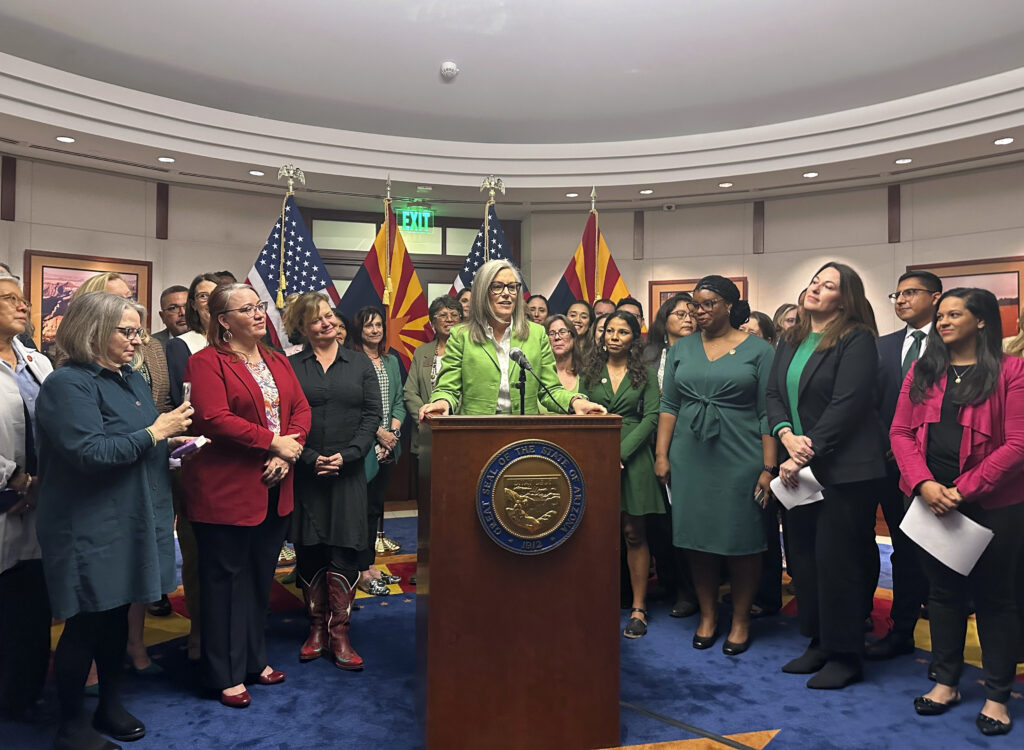Arizona’s top officials certified the state’s election results on Monday, solidifying voter approval of a measure expanding abortion access. The new policy extends the limit from 15 weeks to the point of fetal viability, marking a significant shift in the state’s reproductive health laws.
The win for reproductive rights advocates paves the way for their next fight: contesting existing Arizona laws they argue are overly restrictive. The current 15-week limit, for instance, permits exceptions only in cases where the mother’s life is in danger.
Without intervention from the courts or legislative action, existing laws will remain in effect, even if they conflict with the newly approved voter measure. Meanwhile, opponents of the constitutional amendment are gearing up to mount a defense.
What Are the Current Abortion Laws in Arizona?
For the time being, abortion providers will have the discretion to perform procedures beyond the 15-week limit. However, legal challenges are anticipated within days, Attorney General Kris Mayes stated during a news conference about the expanded access.
“The position of the state of Arizona will be that we agree that abortion is legal in our state,” Mayes said.
Current laws include a requirement for patients to undergo an ultrasound at least 24 hours before the procedure, with the option to view the image and hear an explanation of it. Another law prohibits abortions sought solely due to a genetic abnormality.
“All the laws that have currently been on the books are under question and are subject to possible challenges at some point,” said Darrell Hill, policy director at the American Civil Liberties Union of Arizona.
Arizona Abortion Proposition
In the 2024 general election, voters in five states approved ballot measures to enshrine the right to abortion in their state constitutions. In Arizona the new measure expands abortion access, while Nevada voters also approved an amendment—with the changes requiring a second approval in 2026 to take effect. Additionally, New York passed a measure banning discrimination based on “pregnancy outcomes.”
Abortion has always been a significant political issue in the United States, but the issue took center stage after the U.S. Supreme Court overturned Roe v. Wade in 2022, allowing states to ban or restrict access. Since then, most Republican-led states have implemented strict abortion restrictions, prompting abortion rights advocates to fight back through ballot measures. Earlier this year, Arizona residents faced the looming prospect of a near-total abortion ban.
Years of Hard Work but Legal Fights Loom
Chris Love, a spokesperson for Arizona for Abortion Access, said the constitutional amendment is the culmination of two years of hard work.
“We’re so excited to see that this is finally coming to fruition,” Love said Monday. “It’s a lovely day.”
Cathi Herrod, president of the socially conservative Center for Arizona Policy, stated that the organization anticipates legal challenges to existing abortion regulations and is preparing to “intervene where appropriate.”
This article includes reporting from The Associated Press
Read the full article here
